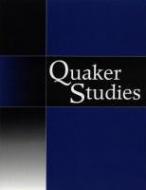
Abstract
This article discusses an early modern autobiographical text in which several female Quaker authors narrate the circumstances surrounding the death of Susanna Whitrow. The Work of God in a Dying Maid (1677) represents the Quaker community as a largely autonomous group of mothers and daughters, set against negative and disruptive male influences. In its adoption of clear gender boundaries, the text reflects the new emphasis on gender binaries within Quakerism in the 1670s. As well as exemplifying the ambiguous position of women within the movement at this later stage, Whitrow et al. renegotiate wider contemporary representations of women, especially mothers, demonstrating the extent to which Quaker structures continued to disrupt dominant gender discourses.
Recommended Citation
Baker, Naomi
(2003)
"Broken-Hearted Mothers: Gender and Community in Joan Whitrow et al., the Work of God in a Dying Maid (1677),"
Quaker Studies: Vol. 7:
Iss.
2, Article 2.
Available at:
https://digitalcommons.georgefox.edu/quakerstudies/vol7/iss2/2
